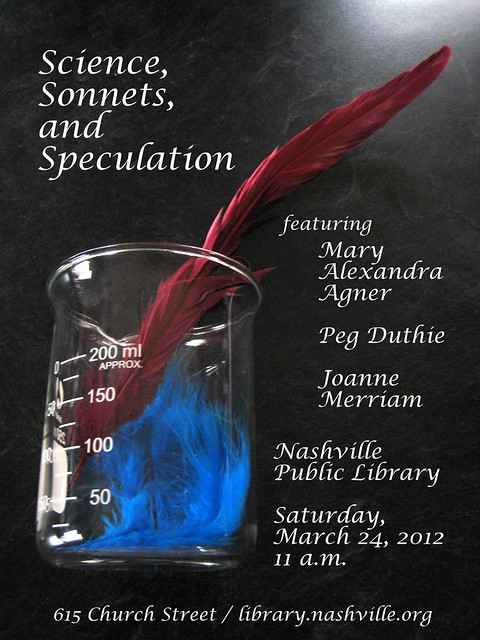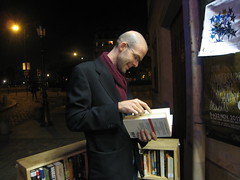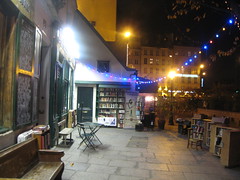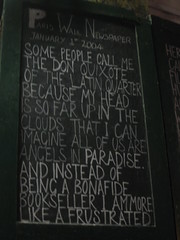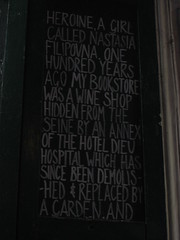In the April 10 issue of the New York Times Book Review, Yeshiva University professor Gilian Steinberg takes David Orr to task for his gibe at Mary Oliver (mentioned in my previous post): “It’s fine for Orr to rank Yeats well above Oliver, a hierarchy with which I agree, but to do so in the context of asking for increased poetry readership is contradictory.
As Orr undoubtedly knows, poetry can be intimidating even to smart and devoted readers of prose. But readers cannot be encouraged to read poetry well if their choices and tastes are treated patronizingly.”
In the same issue, David Kirby reviews Orr’s Beautiful and Pointless: A Guide to Modern Poetry. It didn’t persuade me to seek out the book, but I was entertained by this parenthetical claim:
“Almost all poets, including myself, lean left,” Orr says. “There are maybe five conservative American poets, not one of whom can safely show his face at a writing conference for fear of being angrily doused with herbal tea.”
I also enjoyed Kirby’s rueful recollection of encountering readers of his poem “Broken Promises”:
Recently, I spoke with a group of high school teachers who wanted to discuss my famous poem — rather, to tell me what it meant. “It’s about your own poems!” said one teacher, and another shouted, “I think it’s about your children!” They seemed a little crestfallen when I said, no, the poem is about the promises we break, as the title and, as far as that goes, the poem itself says.
The teachers thought that my poem said one thing but meant another, and that it’s the reader’s job to figure out what the poet is really saying. No wonder poetry doesn’t have a bigger audience. All that code cracking. Who has the time?
I confess I have a fresh appreciation for Kirby’s attitude after sitting through Frank Bidart’s reading at Vanderbilt last week with Joanne. There were a couple of gems in the lot, and the Q&A was engaging, and Bidart is a good performer of his work — but, truth be told, I was bored by most of it, and I found myself muttering “oh, please” at the third iteration of one of his pet abstractions, and well, just not my cuppa. I didn’t feel stupid; I felt like there wasn’t enough there there for me to clothe an emperor. Judging from the lines at the book table during the reception, though, others clearly got more out of the experience. Chacun a son gout…
The other thing Kirby’s anecdote reminds me of? William Matthews’s A Poetry Reading at West Point.
